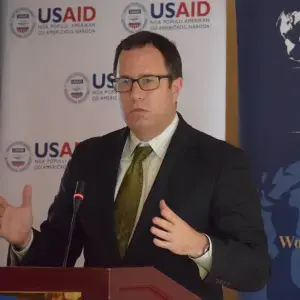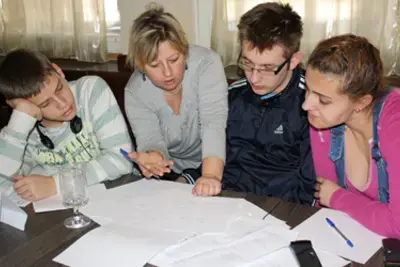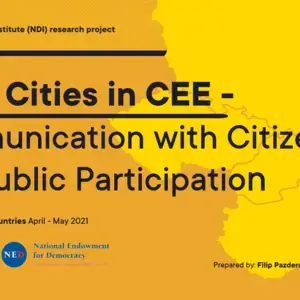
Where We Work
Hungary
Overview
Hungary navigated a democratic transition in the 1990s following the 1989 revolution, which overturned communist rule. The country joined NATO and the European Union by 2004. Hungary’s democratic future will rely on open and inclusive public discourse and new and varied forms of citizen engagement.
In Hungary, the National Democratic Institute (NDI) empowers young people, women, and marginalized groups to engage with democratic actors, including civil society leaders and municipal representatives. As part of a set of regional initiatives in Central Europe, NDI promotes the role cities can play in cultivating innovative civic engagement in political processes; builds the advocacy skills of Roma community leaders; engages faith based organizations, together with different community groups, to work in coalition to promote tolerance; and supports civil society to represent citizen interests and engage in meaningful advocacy.
Magyarország
Magyarországon az 1990-es években a kommunista uralmat megdöntő 1989-es rendszerváltást követően demokratikus átmenet következett. Az ország csatlakozott a NATO-hoz és 2004-ben az Európai Unióhoz is. Magyarország demokratikus jövője nagymértékben függ attól, hogy mennyire nyílt és elfogadó a közbeszéd, illetve milyen új és változatos formái jelennek meg az állampolgári szerepvállalásnak.
Magyarországon a National Democratic Institute (NDI) elsősorban a fiatalokat, nőket és a marginalizált csoportokat erősíti abban, hogy az őket érintő ügyekben hogyan működhetnek együtt a demokratikus szereplőkkel, úgy mint a civil társadalom vezetőivel és az önkormányzati képviselőkkel.
Közép-európai regionális kezdeményezések részeként az NDI segíti a városokat is, hogy innovatív módon támogathassák a civilek szerepvállalását a politikai folyamatokban; továbbá a roma közösségi vezetők érdekérvényesítési lehetőségeit építi; valamint összeköti a vallási alapon működő szervezeteket és különböző közösségi csoportokat, hogy koalícióban dolgozzanak együtt a tolerancia előmozdítása érdekében, és támogatja a civil társadalmat a polgárok érdekeinek képviseletében és az érdemi érdekérvényesítésben.
Featured Publication
Meet The Experts
View More








